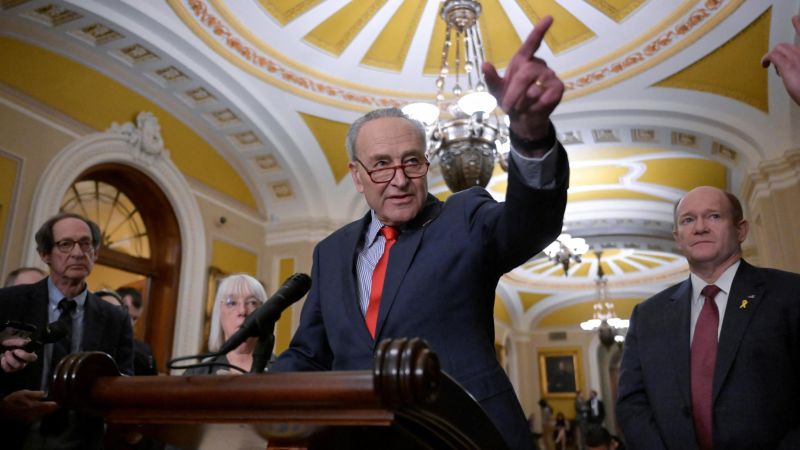Senate Majority Leader Chuck Schumer addressed the ongoing disagreements between Democrats and Republicans regarding the renewal of a key intelligence community surveillance tool, Section 702 of the Foreign Intelligence Surveillance Act. While there is broad support for this section in the Senate, there are fierce critics from both parties who have privacy concerns and the ability to delay final passage of the bill if an agreement is not reached by the end of the day.
Schumer emphasized the importance of reaching an agreement on the FISA bill quickly for national security purposes, but acknowledged that disagreements on how to proceed still exist. He highlighted the need for cooperation from both sides in order to move forward with the bill and ensure its completion. The potential for one member to halt progress in the chamber was also noted as a complicating factor in the negotiation process.
Under FISA’s Section 702, the government collects massive amounts of internet and cell phone data on foreign targets, leading to incidental collection of information on American citizens without a warrant. This has sparked concerns about privacy violations and the use of “backdoor” searches by critics. However, supporters argue that this data is crucial for intelligence agencies to access quickly in order to monitor foreign activities and prevent potential threats.
The intelligence gathered through Section 702 has played a key role in informing the president on various national security matters, including monitoring Russia’s activities in Ukraine, identifying foreign threats to US infrastructure, and uncovering terrorist networks. Schumer urged senators to be prepared to work over the weekend to complete the FISA bill and potentially take up a funding bill for Ukraine, Israel, and Taiwan that the House is expected to pass.
Senate Minority Leader Mitch McConnell also stressed the importance of passing the FISA bill, citing past abuses by the FBI as a reason for necessary changes in the legislation. McConnell expressed concerns about critics spreading fear-mongering about potential surveillance of Americans in public places, arguing that such claims should be disregarded. He underscored the serious consequences if the Senate fails to act on these critical national security issues.
Both Schumer and McConnell called for quick passage of the FISA bill and the foreign aid funding bill, emphasizing the urgency of addressing these matters to protect national security interests. As negotiations continue between Democrats and Republicans, the fate of the FISA bill and other legislative priorities remains uncertain, but both leaders expressed a commitment to finding a resolution and completing the necessary tasks expeditiously.


